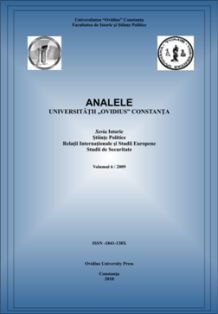ACTIVITATEA DE RP IN SITUATII DE CRIZA SI CONFLICT. STUDIU DE CAZ – BOSNIA-HERŢEGOVINA
RP Activity in Crisis Situations - Study Case on Bosnia-Hercegovina
Author(s): Anne JugănaruSubject(s): History
Published by: Ovidius University Press
Keywords: IFOR; NATO; policy; Dayton agreement
Summary/Abstract: Bosnia became point of interest for the press starting with Dayton Peace Agreement. As a consequence NATO adopted an active information policy, thus stimulating the attention of mass-media. The policy implied not only institutional development as the outcome of numerous and regular press conferences but also providing constant press information, the availability of commandants for interviews, mass media activities or the pursuit of activity of a civil affairs officer. The policy was considered crucial as regards the first phases of the operation because NATO intended to not be assimilated with the military and information inefficiency of FORPRONU. In order to achieve the above mentioned goal IFOR provided detailed information in point of IFOR operations.But the message for the forces that were involved in conflict had as core the transmission of the fact according to which IFOR was prepared and well led, equipped accordingly and ready to meet challenges even by means of force, if necessary. Although the focus of press regarded the civil aspects of implementation of Dayton agreement, the active approach of IFOR continued during Joint Endeavou operation. The actions included patrols, demining and civil activities. IFOR has published its actions supported by international organizations – for example the elections from June 1996, when IFOR acted so as to sustain OSCE. The transition to SFOR has determined that public relations to be diverted toward the emphasis of civil organizations.
Journal: Analele Universităţii Ovidius din Constanţa - Seria Istorie
- Issue Year: 2009
- Issue No: 06
- Page Range: 33-46
- Page Count: 14
- Language: Romanian
- Content File-PDF

